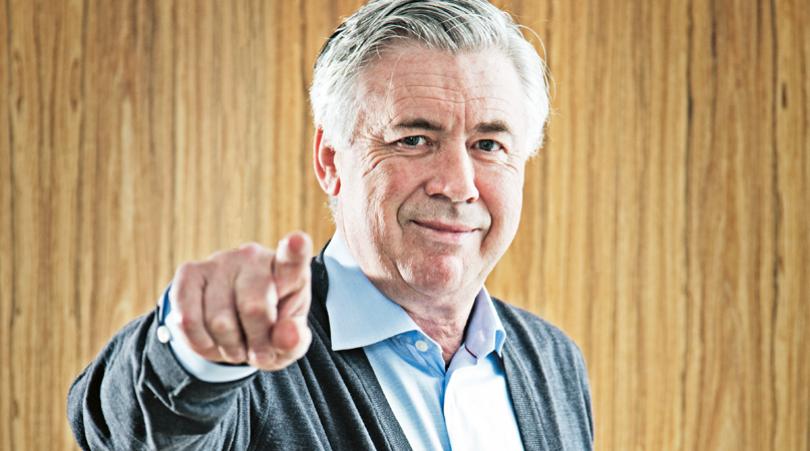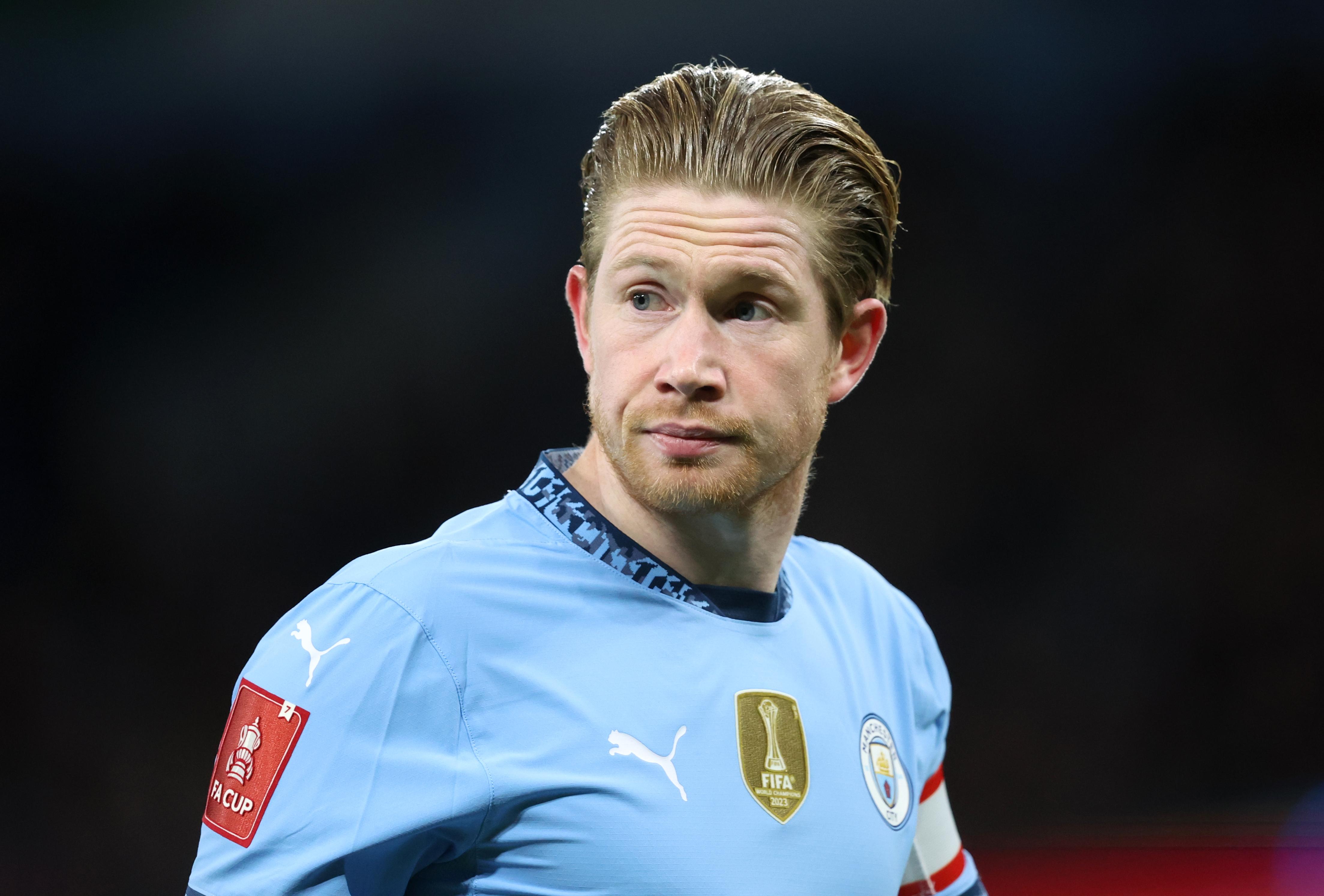Shearer’s Newcastle debut, 20 years on: “I didn’t think I’d ever play for them”
Twenty years ago, the Geordie general kicked a first ball for his hometown team. He tells FFT what it really was like making it home the long way around, and about everything else in between...
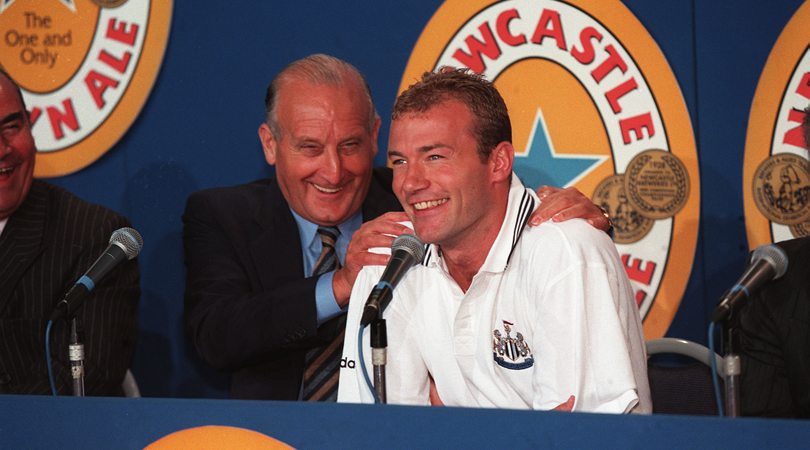
Alan Shearer has been one of the most dominant figures in English football, inspiring Blackburn to the title in FFT’s first season and just a year later giving the nation hope that 30 years of hurt could be banished at Euro 96.
Shearer won the Golden Boot that summer and scored two goals in England’s 4-1 mauling of the Dutch at Wembley – surely the greatest England performance in FFT’s 22-year lifetime (and we include the 5-1 in Munich in that).
In 1998, he captained his country at the World Cup in France, and then – during an otherwise miserable Euro 2000 – he scored the goal that gave England a competitive victory over Germany for the first time since 1966.
I came back to Newcastle to be greeted by 20,000 people outside the stadium in the pouring rain
After hanging up his England boots, he continued to re-write the record books at Newcastle, surpassing Jackie Milburn’s all-time scoring record in February 2006. He retired at the end of that season and – that brief spell in management apart – has spent much of the last four years on the Match of the Day sofa with Gary Lineker for company.
Now, to that career...
The long way home: Newcastle
Describe your relationship with your hometown club…
It was the club I supported as a kid and it was always my dream to play in a black and white jersey, but I didn’t really think it was going to happen. When the chance came along I wasn’t going to let it go.
Get FourFourTwo Newsletter
The best features, fun and footballing quizzes, straight to your inbox every week.
Obviously you’re from the area, but did you realise what a football-mad city it was until you actually signed for the club?
I always knew that it was a football-mad city – that’s their life up here – but having said that, when I came back to Newcastle in 1996 to be greeted by 20,000 people outside the stadium in the pouring rain, when I was being paraded as a Newcastle player, was something else. I had never seen scenes like that before.
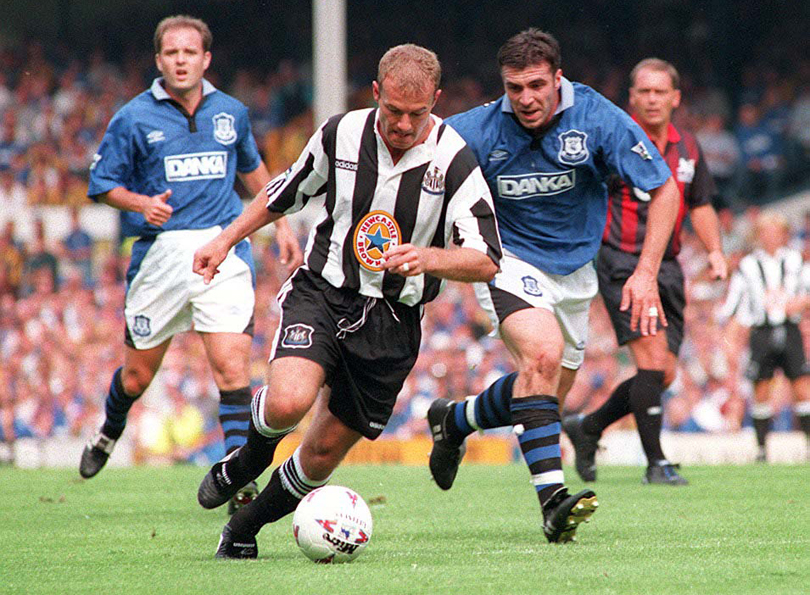
What’s it like to be in basically football’s biggest goldfish bowl?
It can be difficult to just go out and do normal things, but I love it. I was brought up here for nearly 16 years before I left and I’ve been back for nearly 15 years as a player, a manager for eight weeks, and a fan. It’s a great football club and a great city.
How many of your England caps would you have given back to have won a trophy with Newcastle?
I genuinely loved playing for England – it’s the highlight of anyone’s career. So have I got any regrets? No. Would I really change anything? No. OK, we didn’t win anything at Newcastle, but we had a lot of fun, which is what the game is all about.
You had a short, unsuccessful spell in charge of Newcastle. Do you still fancy a career in management?
Despite what happened [at Newcastle], I loved it. If something was to arise again I would seriously look at it.
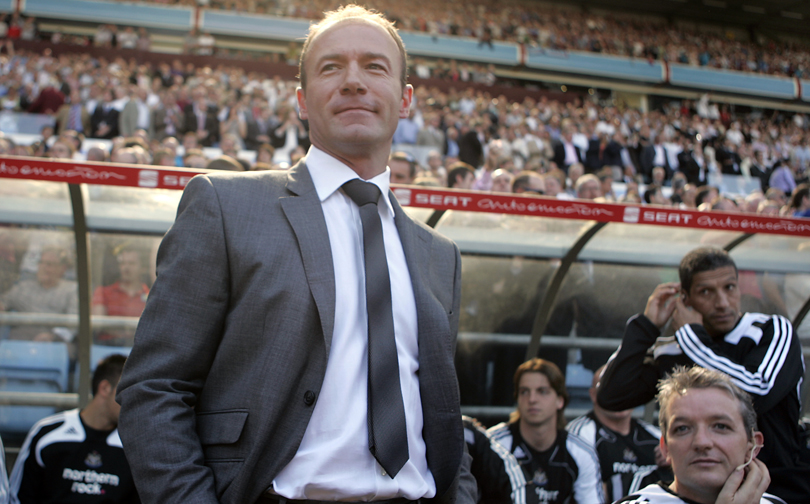
Would you like a crack at the England job?
Everyone thinks they can do the England job, but it’s fine thinking that; doing it is an entirely different thing. It’s a very, very difficult job, in fact it’s almost the impossible job, but I’m an Englishman so it would be very hard to turn it down. I would definitely like to see an Englishman in charge.
Snoods, sparky, stadiums and celebrations
How much more do you think you would have achieved were it not for some serious injuries and how did they change you as a player?
I had three career-threatening injuries and I think after the second one I lost half a yard and had to change my game. I became more of a targetman, but whether you like it or not, as a centre-forward you’re going to be judged on goals and that never really dipped throughout my career.
When you have serious injuries and you’re pounding away in the gym and you’re out for six, seven months then there are definitely times when you think to yourself, “Am I ever going to be as good as I was?” What I found was that you did have your dark days, but if you worked hard enough then there was always a way back, which I proved.
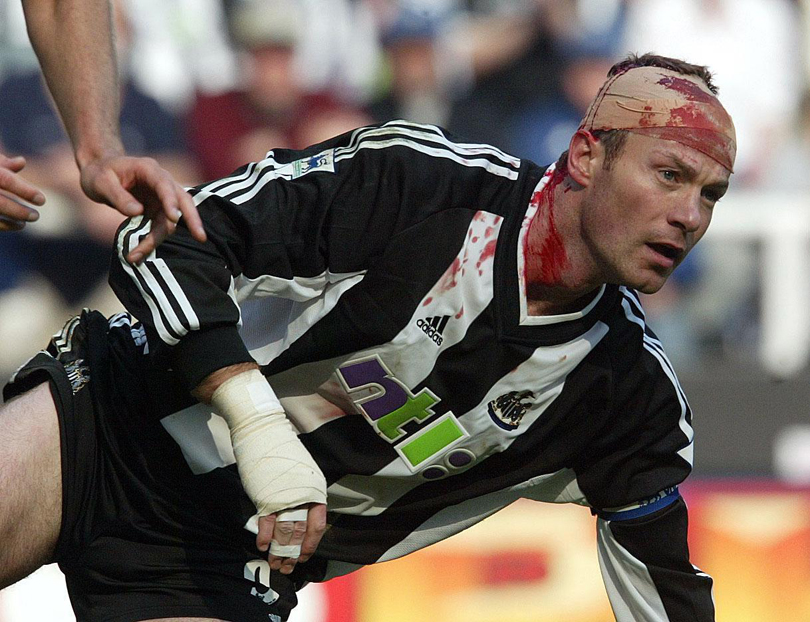
Your trademark goal celebration was usually one hand in the air, occasionally two. Are you a fan of the modern pre-rehearsed routines?
I don’t know why it happened. I didn’t even realise I was doing it to be honest. It was instinctive really. I’m not a fan of the pre-planned routine, although having been a manager I can say that you don’t really care what the players do after they’ve scored – as long as they have scored!
Which players from the modern era have you enjoyed watching the most? Did you ever model yourself on any particular player when you were breaking through?
Dennis Bergkamp and Gianfranco Zola were probably the best two foreign players that we’ve had playing in this country. I was a huge fan of Mark Hughes, though. When I made my debut at 17, he was the great centre-forward who not only bullied people, but also brought other players into the game, scored goals and was horrible to play against.

There have been unprecedented changes since FFT launched in 1994. Which have been for the better and which have been for the worse?
The worst change has to be the offside law because, even now, no one really understands it. The old law was easy – if you were offside, you were offside, simple. Now there’s so many permutations. It’s strange. The best would probably be the stadiums – when you look back to my debut in 1988, there’s no comparison.
What kind of treatment would you have expected from the likes of Tony Adams if you’d worn a snood in cold weather?
Snood or not, he would have given me a kick anyway. Ten years ago, centre-backs always had one free shot at you – you could get away with one bad tackle before you got a yellow card. Not anymore.
The making of a legend: Southampton
How did you end up at south coast? Was it the only offer you had?
It was my choice to go to Southampton. I could have gone to Newcastle and to Manchester City or one or two other clubs, but Southampton had a Centre of Excellence which I had gone to in the school holidays. I’d got to know some of the lads and the coaches down there. They were a club that had a good history of bringing through young players. They were never going to buy their success, so I thought if I was good enough I would get the opportunities I needed.
Did that help your development?
Moving away aged 15 and going to live in digs a long way from home meant I grew up fast. It had a massive influence on me and my career. I’ve got daughters, and I realise that for me to move away so young must have been very hard for my parents. Looking back, though, it was a great decision.
At what point did you realise that you were going to make it as a pro and that you had a shot at playing for England?
You always think you have half a chance – or I did anyway – but I was brought up to realise that there might always be somebody better than you. I played with Rod Wallace and Matt Le Tissier for two or three years as an apprentice and on schoolboy forms, and I certainly wasn’t one of the better players at 15 or 16. I had to work very hard at what I had.
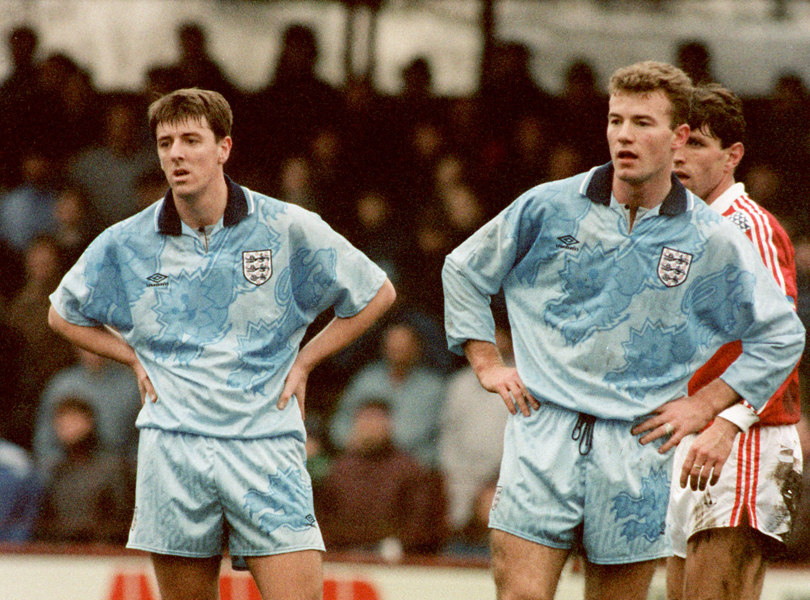
Describe scoring a hat-trick against Arsenal in your first league start…
I got the call at about 12.30 after a pre-match meal saying, “You’re in, Danny Wallace has failed his fitness test.” I suppose I didn’t really have time to get nervous; it was more a case of get your kit on and get out there. I can still remember the goals. Mind you, it made life difficult because everyone expected me to do it every week.
Goals, goals, goals: Blackburn Rovers
How would you describe yourself when you left Southampton for Blackburn?
I wasn’t prolific at Southampton, so I was still definitely learning the game when I went to Ewood Park. I had a decent record at Southampton, particularly in my last season at the Dell when I got 20-odd goals, but I just felt the time was right for me to go on to the next stage.
Why was Blackburn your favoured destination after leaving Southampton? Why not Manchester United?
There was interest from Manchester United, but I was told I would have to wait three or four weeks for them to get the money together. I felt if they really wanted me then they would come and get me immediately. I’d already spoken to Blackburn and had told Kenny Dalglish, Ray Harford and Jack Walker that I would give them an answer in three or four days – and my answer was yes.
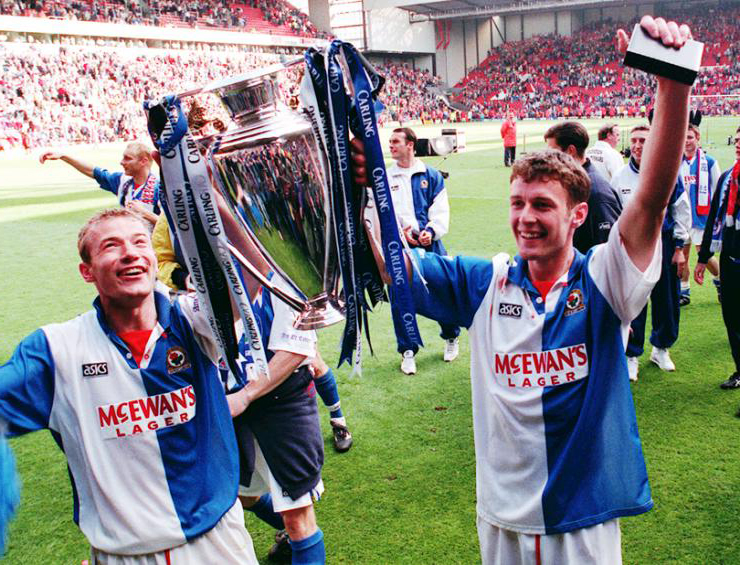
You cost £3.3m back in 1992. Could you have imagined the kind of money that teams would be spending now?
I said 15 years ago that there would never ever be a better time to be a footballer, but it looks like I was wrong. When I first started on the government’s YTS at Southampton I got £25 a week in my first year and £37.50 in my second. If there is a problem now, it’s that average players are becoming multi-millionaires. That’s great for them, but that’s why we see some of the problems we do.
1996 and all that: England
What was it like to play for your country?
I was at Southampton when I was first called up in 1992, which justified my decision to go there in the first place. We played France at Wembley and I scored a goal on my debut, which obviously relaxes you, but I don’t think you ever feel confident enough to enjoy the experience straight away. You don’t really feel part of it until you’ve won 10 or 15 caps.
When FFT launched, the 1994 World Cup had just passed. Did failure to qualify give you added impetus ahead of Euro 96?
Missing out on that tournament played a part, but there was a lot of pressure on us going into Euro 96. I was feeling it too because I hadn’t scored in something like 14 games. There was also the infamous Hong Kong episode and the drinking that went with it, which increased the pressure, although I believe that really pulled everyone together and helped us gel.
Euro 96 was genuinely magical from the fans’ point of view. What was it like to play in?
Each game was amazing. That Holland match was the best I ever played in as an England player – it was just incredible. At Euro 96, though, it wasn’t just the fact we reached the semi-finals; it was that we genuinely had a lot of fun, and I think the country did too. Terry Venables liked a laugh and a joke and he believed that was crucial to get the best out of everyone.
Has that fun gone out of playing for England?
It seems that way. There’s always a hell of a lot of pressure when you play for England, whether it’s in qualifying or in tournaments, and with that pressure maybe it isn’t as much fun anymore, which is a massive shame. That said, I still think there’s always a huge pride in representing your country – I hope that never changes.
Describe captaining England at the 1998 World Cup…
That was the best. To be given the England captaincy was the best thing that has happened to me in football. I always dreamt that one day I would play for England, but never ever did I think I would captain them.
This interview originally appeared in the February 2011 issue of FourFourTwo. Subscribe!
